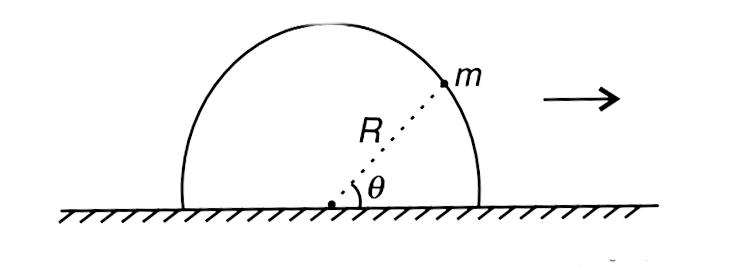A ball rests upon a flat piece of paper on a table top. The paper is pulled horizontally but quickly towards right as shwon. Relative to its initial position with respect to the table, the ball

(i) remains stationary if there is no friction between the paper and the bell.
(ii) moves to the left and starts rolling backwards, i.e. to the left if there is a friction between the paper and the ball.
(iii) moves forward, i.e. in the direction in which the paper is pulled.
(iv) Here, the correct statements/s/is/are
Both (i) and (ii)
Only (iii)
Only (i)
Only (ii)
Step by step video & image solution for A ball rests upon a flat piece of paper on a table top. The paper is pulled horizontally but quickly towards right as shwon. Relative to its initial position with respect to the table, the ball (i) remains stationary if there is no friction between the paper and the bell. (ii) moves to the left and starts rolling backwards, i.e. to the left if there is a friction between the paper and the ball. (iii) moves forward, i.e. in the direction in which the paper is pulled. (iv) Here, the correct statements/s/is/are by Physics experts to help you in doubts & scoring excellent marks in Class 11 exams.
Topper's Solved these Questions
Similar Questions
Does the attraction between the comb and the piece of papers last for longer period of time?
View SolutionA ball rolls off the edge of a horizontal table top 4 m high. If it strikes the floor at a point 5 m horizontally away from the edge of the table, what was its speed at the instant it left the table?
View Solution
Knowledge Check
- Question 1 - Select One
In the figure shown, the frictional coefficient between the table and the block is 0.2. Find the ratio of tensions in the right and the left strings.
 A0.725B34:12C2:3D3:2
A0.725B34:12C2:3D3:2 - Question 2 - Select One
On moving from left to right in a period in the periodic table, the size of the atom.
AincreaseBdecreasesCdoes not change appreciablyDfirst decreases and then increases - Question 3 - Select One
In a period of the periodic table as we move from left to right usually
Aatomic radlus decreasesBlonisation potential increasesCelectron affinity decreasesDelectronegativity increases
Among the above statements, which one is false?
A piece of paper is in the form of a sector, making an angle a. The paper is rolled to form a right circular cone of radius 5 cm and height 12 cm. Then the value of angle a is
View SolutionA ball of mass m moving with speed v towards the right strikes a wall moving towards the left with speed u. Find the change in the K.E. of the ball if the collision is elastic.
View SolutionA semicircular wire frame of radius R is standing vertical on a horizontal table. It is pulled horizontally towards right with a constant acceleration. A bead of mass m remain in equilibrium (relative to the semicircular wire) at a position where radius makes an angle q with horizontal. There is no friction between the wire and the bead. The bead is displaced a little bit in upward direction and released. Calculate the speed of the bead relative to the wire at the instant it strikes the table. Assume that all throughout the semicircular wire keeps moving with constant acceleration.
 View Solution
View SolutionA ball is projected with initial speed u at an angle θ above the horizontal . Calculate the time after which ball will be moving at right angle to its initial velocity.
View SolutionI put the paper in the………. (envelope/envelop)
View Solution

